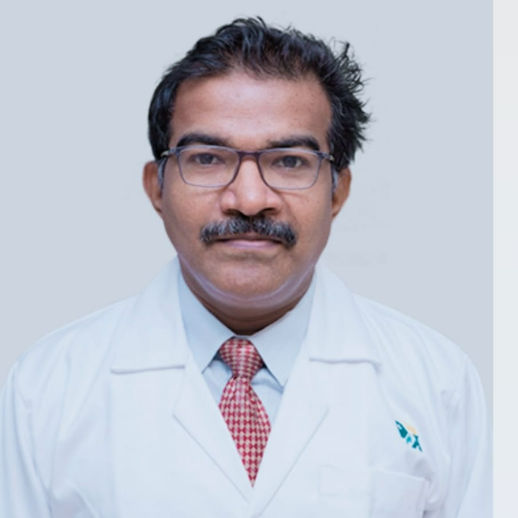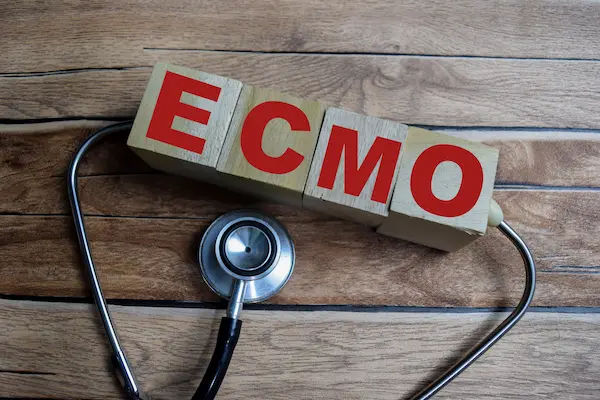Men’s Health Guide: Importance and Tips
Explore the importance of men’s health, common concerns, and practical tips to maintain well-being and lead a healthier lifestyle.

Written by Dr. J T Hema Pratima
Reviewed by Dr. Rohinipriyanka Pondugula MBBS
Last updated on 13th Jan, 2026

Introduction
Men's health is a critical topic that, for too long, has been shrouded in silence and stigma. Many men are conditioned to prioritise work, family, and responsibilities over their own wellbeing, often dismissing symptoms and avoiding doctors until a problem becomes severe. This guide cuts through the noise to address the undeniable importance of men's health, encompassing both physical and mental wellness. We’ll explore the key reasons men neglect their health, break down the essential pillars of a healthy lifestyle, and provide a clear, actionable plan for preventative care. Taking charge of your health isn’t a sign of weakness; it's the ultimate demonstration of strength and responsibility. Let's dive in and learn how to build a healthier, more vibrant future.
Breaking the Silence: Why Men's Health is Often Overlooked
Despite its importance, men’s health is frequently neglected, leading to preventable conditions and reduced quality of life.
The "Tough Guy" Syndrome and Societal Stigma
From a young age, many men are taught to be stoic, self-reliant, and to avoid showing vulnerability. This "tough guy" mentality creates a significant barrier to seeking help. Seeing a doctor can be misperceived as an admission of weakness, leading men to ignore concerning symptoms, downplay pain, and delay crucial medical consultations. This stigma is a primary reason why men are less likely than women to seek preventative care and often present with more advanced stages of disease.
The Alarming Statistics: A Wake-Up Call for Men
The consequences of neglecting health are stark. According to the Men's Health Network, men die on average 5 years earlier than women. They have higher death rates for most of the leading causes of death, including heart disease, cancer, and diabetes. Furthermore, men are nearly four times more likely to die by suicide, highlighting a profound crisis in male mental health awareness. These statistics aren't just numbers; they represent a preventable loss of life and a compelling reason to change the narrative around men's health.
Consult Top urologist
The Pillars of Physical Health: More Than Just Muscle
Physical health encompasses more than strength; it includes heart health, prostate and urological care, and understanding testosterone levels.
Heart Health: Your Most Important Muscle
Cardiovascular disease is the leading killer of men worldwide. Risk factors like high blood pressure, high cholesterol, smoking, and a sedentary lifestyle are often silent until a major event, like a heart attack, occurs. Understanding the early warning signs of heart disease, such as chest discomfort, shortness of breath, and unusual fatigue, is crucial. Regular cardio exercise, a heart-healthy diet low in saturated fats, and managing stress are foundational to keeping your heart strong.
Prostate and Urological Health: What Every Man Needs to Know
The prostate is a gland that becomes a common site of health issues as men age. Benign Prostatic Hyperplasia (BPH, enlarged prostate) can affect urinary function, while prostate cancer is one of the most common cancers in men. Discussions about prostate health can feel uncomfortable, but they are vital. Early detection through screenings like the PSA test can be life-saving. If you experience changes in urinary habits, pain, or discomfort, it's essential to consult a urologist.
The Low T Conversation: Understanding Testosterone
Testosterone is a key hormone influencing muscle mass, bone density, mood, and libido. Levels naturally decline with age, but a significant drop can lead to symptoms like chronic fatigue, depression, weight gain, and low sex drive, a condition often called "Low T." While not every man needs treatment, understanding the signs of low testosterone is important. If you're experiencing these symptoms, a simple blood test can provide answers.
The Unseen Battle: Prioritising Mental and Emotional Wellbeing
Mental and emotional health are often overlooked, yet they play a crucial role in overall wellbeing and quality of life.
Recognising the Signs of Depression and Anxiety in Men
Men's mental health often manifests differently than in women. Instead of sadness, men may show anger, irritability, aggression, or engage in reckless behaviour. They might also obsess over work or use alcohol and drugs to cope. It's critical to recognise that mental health struggles are not a character flaw. Persistent feelings of hopelessness, loss of interest in hobbies, and changes in sleep or appetite are all red flags that should not be ignored.
Stress Management: Strategies for a Modern World
Chronic stress is a silent contributor to numerous health problems, from hypertension to a weakened immune system. Effective male stress management techniques are essential tools. This can include regular physical exercise, mindfulness practices like meditation, pursuing hobbies, and maintaining strong social connections. Talking to a friend, family member, or a professional therapist is one of the most powerful steps a man can take to manage his emotional load.
Prevention is Power: Essential Health Screenings for Men
Regular health screenings help men detect potential issues early, ensuring timely treatment and long-term wellness.
The Baseline: Blood Pressure and Cholesterol Checks
High blood pressure and cholesterol are key risk factors for heart disease and stroke, yet they have no obvious symptoms. Every man should know his numbers. A baseline reading should be done by age 18, and regular checks are recommended every 1-2 years for adults with normal levels, or more frequently if elevated. Apollo24|7 offers a convenient home collection for tests like lipid profiles, making it easier than ever to stay on top of your cardiovascular health.
Cancer Screenings: Prostate, Colorectal, and Testicular
Early detection is the best defense against cancer.
Prostate: Discussions about PSA testing should begin at age 50 for average-risk men, or earlier (age 45) for high-risk men (e.g., African American men or those with a family history).
Colorectal: Screening typically starts at age 45 via colonoscopy or other stool-based tests.
Testicular: While formal screening isn't standard, regular self-exams can help men become familiar with their bodies and identify any unusual lumps or changes early.
Metabolic Health: Diabetes and Beyond
Type 2 diabetes is increasingly common. Screening for diabetes with a blood glucose or HbA1c test is recommended every three years starting at age 45, or earlier if you are overweight or have other risk factors. Apollo24|7 offers convenient home collection for tests like HbA1c, allowing for easy monitoring and early intervention through diet and lifestyle changes.
Get Your Health Assessed
Building Healthy Habits: Nutrition, Exercise, and Sleep
Adopting balanced nutrition, regular exercise, and quality sleep forms the foundation for long-term physical and mental well-being.
Fueling the Male Body: Nutrition for Longevity
A balanced diet rich in whole foods, fruits, vegetables, lean proteins, and whole grains provides the energy and nutrients needed for optimal function. Focusing on a prostate cancer prevention diet that includes lycopene (found in tomatoes), cruciferous vegetables, and healthy fats like omega-3s can be particularly beneficial. Limiting processed foods, sugar, and excessive red meat is key to maintaining a healthy weight and reducing inflammation.
The Non-Negotiable: Consistent Physical Activity
The benefits of an annual physical are maximised when paired with regular exercise. Aim for at least 150 minutes of moderate aerobic activity (brisk walking, cycling) or 75 minutes of vigorous activity (running, swimming) per week, plus muscle-strengthening activities on two or more days. Exercise is a powerhouse for improving cardiovascular health, boosting mood, maintaining healthy testosterone levels, and managing weight.
The Foundation of Recovery: Prioritising Quality Sleep
Sleep is when your body repairs itself. Consistently getting less than 7-8 hours of quality sleep can sabotage your health goals, impair cognitive function, and increase the risk of chronic disease. Establish a regular sleep schedule, create a dark and cool sleep environment, and avoid screens before bed to significantly improve your sleep hygiene.
Your Action Plan: Taking the First Step Today
Creating a personalised health plan and making small, consistent changes today can set you on the path to lasting wellness.
1. Schedule Your Annual Physical: This is the single most important step. It establishes a baseline and opens a dialogue with your doctor.
2. Know Your Numbers: Write down your blood pressure, cholesterol, blood sugar, and BMI. Set goals to improve them if needed.
3. Move Daily: Find a physical activity you enjoy and make it a non-negotiable part of your routine.
4. Check-In Mentally: Honestly assess your stress and mood. Talk to someone if you're struggling.
5. Small Nutritional Swaps: Start with one healthy change, like adding a vegetable to every meal or swapping soda for water.
Conclusion
Understanding the importance of men's health is the first step toward a longer, healthier, and more fulfilling life. It's about shifting from a reactive mindset only seeking help when something is broken to a proactive one focused on prevention and optimisation. This journey isn't about achieving perfection; it's about making consistent, positive choices that compound over time. It's about breaking free from outdated stereotypes and embracing the strength it takes to be vulnerable and prioritise your well-being. Your health is your most valuable asset for you, your family, and your future. Start today by committing to one positive change and scheduling that check-up you've been putting off. If you're unsure where to begin, consult a doctor online with Apollo24|7 to discuss your health goals and create a personalised plan.
Consult a Urologist for the best advice
Consult Top urologist

Dr Karthik Maripeddi
Urologist
13 Years • MBBS MS FMAS MCh URO(OSM)
Hyderguda
Apollo Hospitals Hyderguda, Hyderguda

Dr. Amvrin Chatterjee
Urologist
10 Years • MBBS, MS, DNB, MCh
Kolkata
Apollo Multispeciality Hospitals , Kolkata, Kolkata

Dr. Pari M R
Urologist
28 Years • MBBS, MS, Mch (Uro)
Chennai
Apollo Speciality Hospitals OMR, Chennai
(100+ Patients)

Dr Anil Kumar T
Urologist
12 Years • MBBS, MS ( General Surgery ) , MCh (Genito-Urinary Surgery , CMC Vellore) , Fellowship in Minimally Access Surgery , Fellow- ship in Uro-Oncology and Robotic Surgery, UICC Fellowship (Geneva, Switzerland).
Bengaluru
Apollo Hospitals Jayanagar, Bengaluru

Dr. Shekar M G
Urologist
29 Years • MBBS, MS, MCh (Urology), DNB, MRCS, FMAS, FICRS, FICS (Urology), MNAMS, DLS, FCN, FSM, FIMSA, - Fellow (Minimal Access Surgery), Fellow (Robotic Surgery)FIAGES,FALS fellow of advance laparoscopic surgery, FAGE
Chennai
Apollo Speciality Hospitals OMR, Chennai
(100+ Patients)
Consult a Urologist for the best advice

Dr Karthik Maripeddi
Urologist
13 Years • MBBS MS FMAS MCh URO(OSM)
Hyderguda
Apollo Hospitals Hyderguda, Hyderguda

Dr. Amvrin Chatterjee
Urologist
10 Years • MBBS, MS, DNB, MCh
Kolkata
Apollo Multispeciality Hospitals , Kolkata, Kolkata

Dr. Pari M R
Urologist
28 Years • MBBS, MS, Mch (Uro)
Chennai
Apollo Speciality Hospitals OMR, Chennai
(100+ Patients)

Dr Anil Kumar T
Urologist
12 Years • MBBS, MS ( General Surgery ) , MCh (Genito-Urinary Surgery , CMC Vellore) , Fellowship in Minimally Access Surgery , Fellow- ship in Uro-Oncology and Robotic Surgery, UICC Fellowship (Geneva, Switzerland).
Bengaluru
Apollo Hospitals Jayanagar, Bengaluru

Dr. Shekar M G
Urologist
29 Years • MBBS, MS, MCh (Urology), DNB, MRCS, FMAS, FICRS, FICS (Urology), MNAMS, DLS, FCN, FSM, FIMSA, - Fellow (Minimal Access Surgery), Fellow (Robotic Surgery)FIAGES,FALS fellow of advance laparoscopic surgery, FAGE
Chennai
Apollo Speciality Hospitals OMR, Chennai
(100+ Patients)
More articles from General Medical Consultation
Frequently Asked Questions
At what age should men start getting serious about regular health checkups?
While habits should form early, men should begin regular health checkups with a primary care physician by age 30 to establish a baseline. More comprehensive screenings (e.g., for cholesterol, diabetes) typically begin at age 35-40, with prostate and colorectal cancer discussions starting at 45-50.
What are the most common signs of mental health issues in men?
Common signs often differ from classic depression and include persistent anger, irritability, aggression, loss of interest in work or hobbies, changes in sleep patterns, engaging in high-risk activities, and physical symptoms like headaches or digestive problems.
How often should I perform a testicular self-exam?
It's recommended to perform a testicular self-exam monthly. The best time is during or after a warm shower when the scrotum is relaxed. This helps you become familiar with what's normal for you and identify any new lumps, swelling, or pain early.
I feel fine. Do I really need to see a doctor?
Absolutely. Many serious health conditions, like high blood pressure, high cholesterol, and early-stage diabetes or cancer, are 'silent' and present no obvious symptoms. A regular health checkup is designed to catch these issues early, when they are most treatable, long before you 'feel' anything wrong.
What's the best exercise for men's overall health?
There is no single 'best' exercise. A combination of cardiovascular exercise (running, swimming, cycling), strength training (weight lifting, resistance bands), and flexibility work (stretching, yoga) provides the most comprehensive benefits for heart health, muscle mass, metabolism, and joint mobility.







